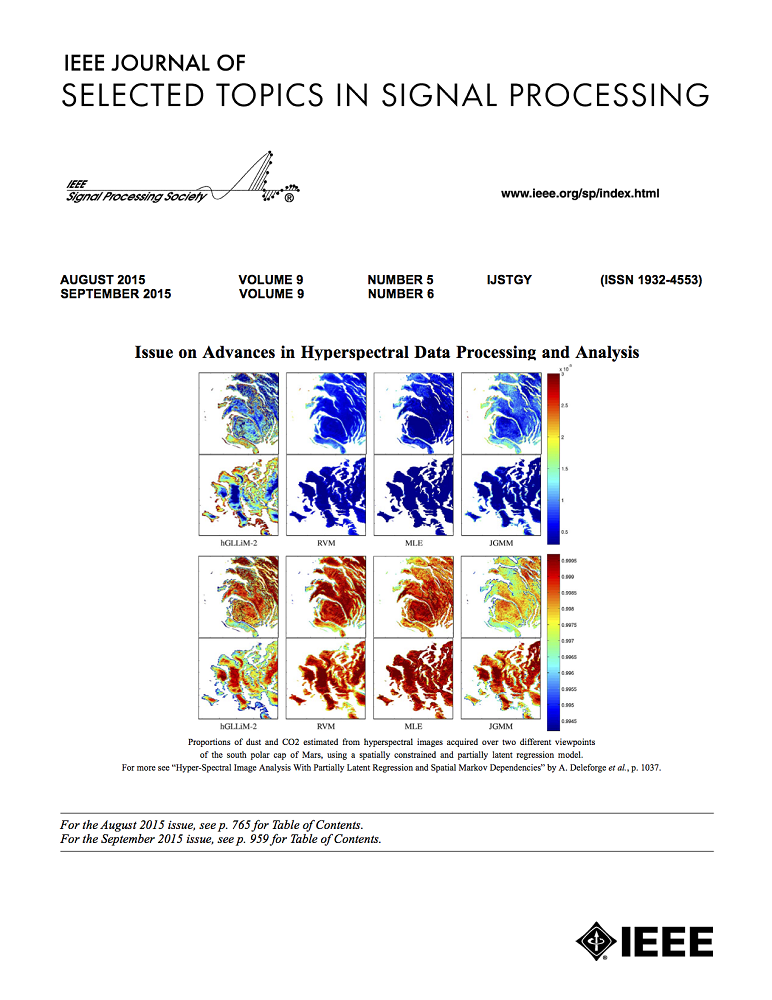Computational Offloading in Semantic-Aware Cloud-Edge-End Collaborative Networks
IF 8.7
1区 工程技术
Q1 ENGINEERING, ELECTRICAL & ELECTRONIC
IEEE Journal of Selected Topics in Signal Processing
Pub Date : 2024-07-25
DOI:10.1109/JSTSP.2024.3433387
引用次数: 0
Abstract
The trend of massive connectivity pushes forward the explosive growth of end devices. The emergence of various applications has prompted a demand for pervasive connectivity and more efficient computing paradigms. On the other hand, the lack of computational capacity of the end devices restricts the implementation of the intelligent applications, and becomes a bottleneck of the multiple access for supporting massive connectivity. Mobile cloud computing (MCC) and mobile edge computing (MEC) techniques enable end devices to offload local computation-intensive tasks to servers by networks. In this paper, we consider the cloud-edge-end collaborative networks to utilize distributed computing resources. Furthermore, we apply task-oriented semantic communications to tackle the fast-varying channel between the end devices and MEC servers and reduce the communication cost. To minimize long-term energy consumption on constraints queue stability and computational delay, a Lyapunov-guided deep reinforcement learning hybrid (DRLH) framework is proposed to solve the mixed integer non-linear programming (MINLP) problem. The long-term energy consumption minimization problem is transformed into the deterministic problem in each time frame. The DRLH framework integrates a model-free deep reinforcement learning algorithm with a model-based mathematical optimization algorithm to mitigate computational complexity and leverage the scenario information, so that improving the convergence performance. Numerical results demonstrate that the proposed DRLH framework achieves near-optimal performance on energy consumption while stabilizing all queues.语义感知云-边缘协同网络中的计算卸载
海量连接的趋势推动了终端设备的爆炸式增长。各种应用程序的出现促进了对普及连接和更有效的计算范式的需求。另一方面,终端设备计算能力的不足制约了智能应用的实现,成为支持海量连接的多址接入的瓶颈。移动云计算(MCC)和移动边缘计算(MEC)技术使终端设备能够通过网络将本地计算密集型任务卸载到服务器上。在本文中,我们考虑了云边缘协同网络来利用分布式计算资源。此外,我们应用面向任务的语义通信来解决终端设备和MEC服务器之间快速变化的信道,降低通信成本。为了最大限度地减少约束队列稳定性和计算延迟的长期能量消耗,提出了一种lyapunov引导深度强化学习混合(DRLH)框架来解决混合整数非线性规划(MINLP)问题。将长期能耗最小化问题转化为各时间段内的确定性问题。DRLH框架将无模型深度强化学习算法与基于模型的数学优化算法集成在一起,以降低计算复杂度并利用场景信息,从而提高收敛性能。数值结果表明,所提出的DRLH框架在稳定所有队列的同时实现了近乎最优的能耗性能。
本文章由计算机程序翻译,如有差异,请以英文原文为准。
求助全文
约1分钟内获得全文
求助全文
来源期刊

IEEE Journal of Selected Topics in Signal Processing
工程技术-工程:电子与电气
CiteScore
19.00
自引率
1.30%
发文量
135
审稿时长
3 months
期刊介绍:
The IEEE Journal of Selected Topics in Signal Processing (JSTSP) focuses on the Field of Interest of the IEEE Signal Processing Society, which encompasses the theory and application of various signal processing techniques. These techniques include filtering, coding, transmitting, estimating, detecting, analyzing, recognizing, synthesizing, recording, and reproducing signals using digital or analog devices. The term "signal" covers a wide range of data types, including audio, video, speech, image, communication, geophysical, sonar, radar, medical, musical, and others.
The journal format allows for in-depth exploration of signal processing topics, enabling the Society to cover both established and emerging areas. This includes interdisciplinary fields such as biomedical engineering and language processing, as well as areas not traditionally associated with engineering.
 求助内容:
求助内容: 应助结果提醒方式:
应助结果提醒方式:


